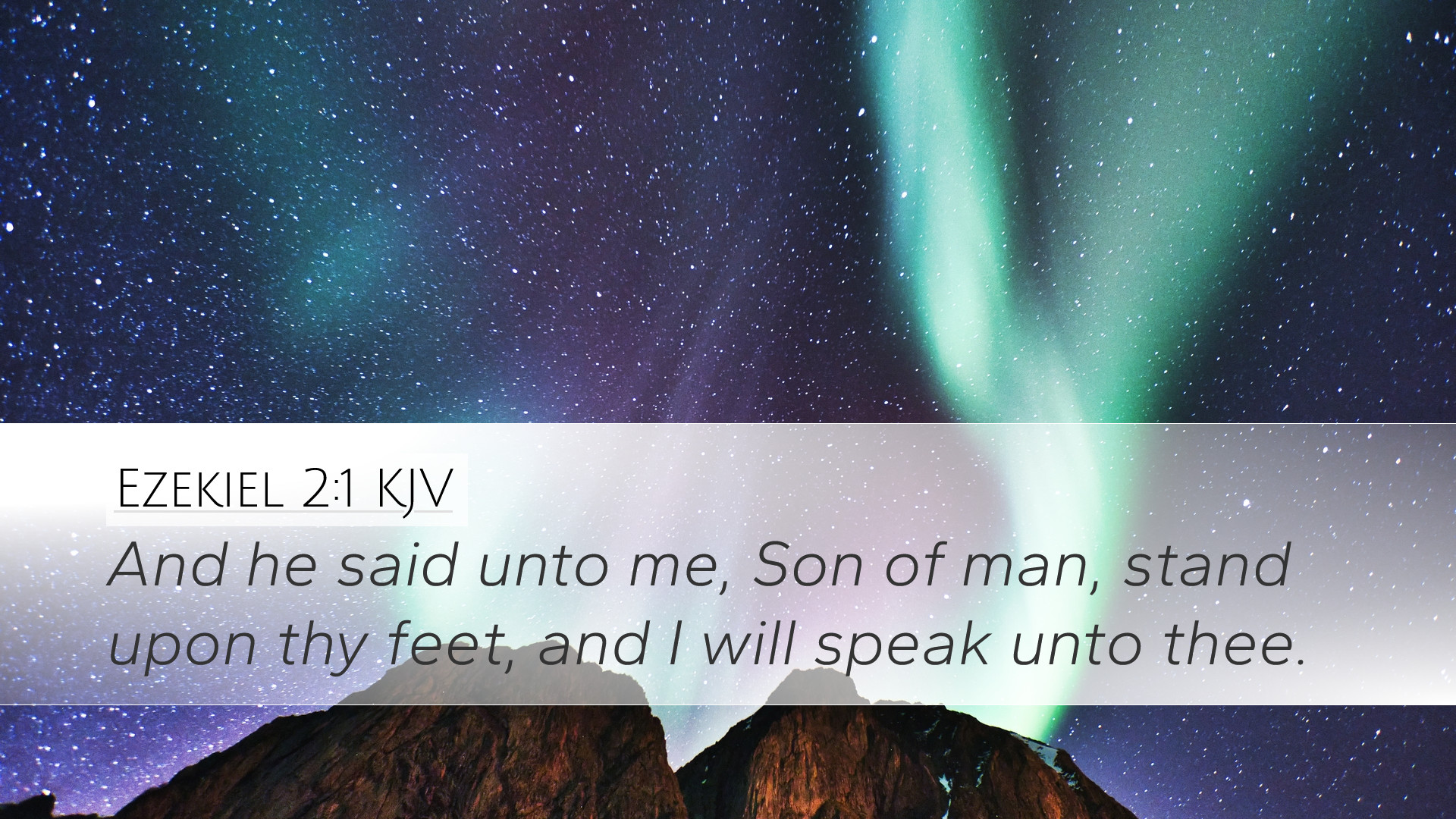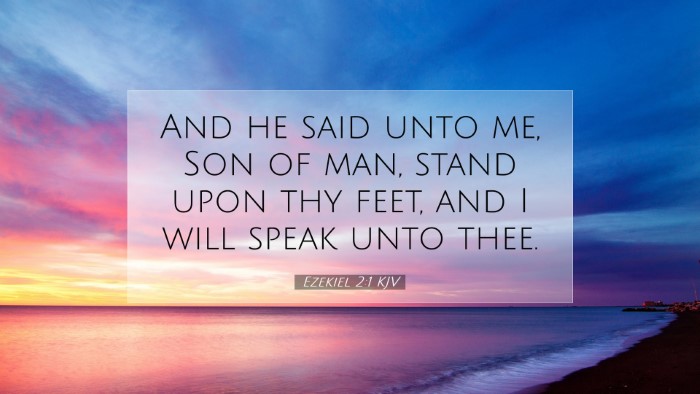Ezekiel 2:1 Commentary
Verse: "And he said unto me, Son of man, stand upon thy feet, and I will speak unto thee."
Introduction
The call of Ezekiel is one of the pivotal moments in the Old Testament, marking not only his prophetic ministry but also the divine authority given to him. This verse encapsulates the essence of Ezekiel's commissioning, emphasizing both his identity as "Son of man" and the directive from God to be in a posture ready to receive His words.
Contextual Background
This passage occurs in the midst of a vision that Ezekiel receives while in exile in Babylon. The people of Israel have suffered tremendous loss and displacement, and Ezekiel himself is faced with the weighty responsibility of delivering God's message to a rebellious nation.
Theological Significance
Ezekiel's designation as "Son of man" is significant in that it underscores his humanity amidst God's divine power. It emphasizes that while he is a chosen vessel, he remains relatable to the people he is called to address. This title also foreshadows the ultimate Son of Man, Jesus Christ, who fulfills the ideal of the prophet.
- Divine Authority: The command to "stand upon thy feet" symbolizes readiness and authority. God establishes His prophet not as a mere passive receiver but as an active participant in His divine plan.
- Response to God's Call: The imperative call reflects the necessity for the prophet to respond promptly and with dignity, indicating the seriousness of the prophetic office.
Commentary Insights
The public domain commentaries provide rich insights into this verse:
Matthew Henry
Matthew Henry emphasizes the importance of the physical posture of Ezekiel in receiving the Word from God. He notes that standing represents readiness and alertness, qualities essential for a prophet. Henry also draws attention to the condescension of God in speaking to man, suggesting that God desires communication with His creation.
Albert Barnes
Albert Barnes focuses on the term "Son of man," explaining how it underscores Ezekiel's mortality and reliance upon God. He opines that the phrase conveys both humility and exaltation—the prophet stands in the presence of God yet is reminded of his human condition. Barnes highlights that God’s call involves a personal commissioning that comes with responsibility and the need for obedience.
Adam Clarke
Adam Clarke discusses the prophetic nature of Ezekiel’s call, indicating that the divine command to stand sets forth a principle applicable to all who would serve God. Clarke elaborates on the implications of standing—indicative of strength, stability, and the need for the prophet to be firm amidst opposition. He also stresses that God’s communication often requires preparation and a readiness to act on what is revealed.
Practical Application
For pastors and theologians, this passage serves as a reminder of the ongoing call to ministry. The necessity of standing ready to receive and respond to God's word applies universally to all believers, not just prophets. When reflecting on this scripture, consider the following:
- Readiness for Service: How do we prepare ourselves to stand and receive guidance from God?
- Understanding Our Role: In what ways do we embody the title "Son of man" as we relate to those we serve?
- Embracing Divine Communication: What are the challenges we face in listening to God’s voice, and how can we overcome them?
Conclusion
Ezekiel 2:1 is a profound invitation to engage with God’s call. Both its immediate context and its broader theological implications encourage believers to stand firm in their faith and ready to receive God’s direction. Embracing our identity as "Son of man" serves not only as a reminder of our human frailty but also our exalted position as recipients of divine communication, entrusted with His messages.


